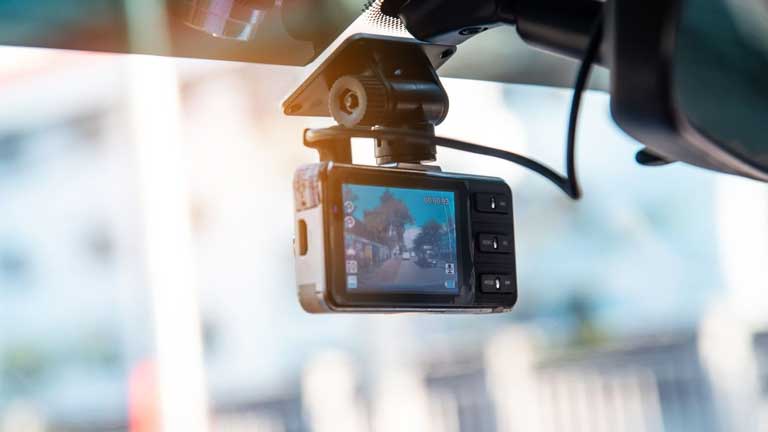Dashcams are becoming more and more popular. They help to provide evidence in the event of a car accident, but do they provide accurate speed data? Can you trust your dash cam for speed?

We are going to answer some common questions about dashcam speeds and guide you on what you should rely on for car speed calculation. Read on to learn the truth about dashcam speeds!
Is Dash Cam Speeds Accurate?
Dashcam speeds are mostly accurate, but they can be inaccurate as well because they take a lot of guesswork into account in order to calculate the speed at which you were driving so it’s important that you review your dashcam footage before counting on the data as being accurate for insurance purposes or court cases.
Most of the dash cams rely on GPS to determine the speed at which you were driving, but this data can be inaccurate if GPS is turned off, lose signal, or not working properly.
Can You Trust Your Dash Cam?
There are a number of different factors that can affect the accuracy of your camera, including where it’s mounted in relation to the ground (height), how fast you’re going when you’re driving by or past objects, and whether there’s enough light available for video recording.
A higher-quality camera will be able to compensate more easily than one with a lower resolution capability. Keep these considerations in mind if you want maximum accuracy from your dashboard camera!
How Much Is An Accurate Dash Cam Cost?
The best price that I’ve seen for a dashcam is $60 and the most expensive one was in excess of $3000, but this all varies with different features on each camera.
You can find some options starting at around 100 to 200 dollars up to about 1000 or more if you need specific features such as additional memory card slots, remote control access, GPS capabilities, higher resolution recording, etc…
The more expensive models are going to have better features such as higher quality video recording, WiFi capability for uploading footage automatically onto various social media outlets (Facebook, YouTube), a built-in digital compass so users never need to worry about the orientation of the camera in relation to car path again!
Read: Top Quality Rearview Mirror Cameras
Dash Cam vs Speedometer: What’s the Pick?
Both dashcam and speedometer are fairly accurate in measuring speed.
A typical car will have a speedometer reading that is off by about +/- 0.20%. Dash cams are accurate to within +/- 0.25% which means they can be relied upon for accuracy in recording your speeds when driving with one of these gadgets installed on the dashboard as long as it’s properly calibrated and functioning correctly.
However, both have a specific challenge when giving you the exact reading for your car speed.
Challenge in Speedometer
The speedometer in your car relies on the rotation of tires and/or the drive shaft in the car to measure speed.
The primary way they do this is by counting the number of times one tire passes over a single point in space, typically located on your steering wheel. The problem with this method is it can show errors since there are many factors that can cause fluctuations in rotations per minute.
There can be a problem with the sensor, your tire, or a host of other things.
If you modify your car, that can cause the speedometer to give an inaccurate reading. So, make sure to check the meter every time you modify the car.
Challenge in Dashcam Speed Calculation
As dashcams rely on GPS, any loss of signal will affect your reading. These cameras rely on signals sent from GPS satellites to measure the speed of a vehicle by calculating how long it takes for these signals to reach you and return, but this can be skewed when there are errors in transmission or if there is any sort of obstruction between the car and satellite.
Additionally, just as with any GPS device, the accuracy of a dashcam’s readings is subject to how well it can lock onto and stay on the signal.
The main problem with this method is that there are so many things that could go wrong based on factors like a damaged GPS tracking sensor in your car, faulty dashcam configuration, or even where you’re driving due to mountains blocking signals. So while these cameras may be accurate for the most part, it is not perfect and can be susceptible to errors.
Conclusion
In conclusion, we can say that dashcams are accurate in calculating speeds as long as the conditions are perfect.
Dashcams can also be unreliable and inaccurate in calculating speeds because of obstructions, transmission errors, or for many other reasons that relate to the dashcam configuration as well as where you’re driving at any given time.
Dashcam prices vary on their features so what you buy all depends on your budget but it’s important to note that you can’t rely solely on your dashcam for speed information, or at least you shouldn’t be. The truth is, if you want to know the actual speed of your vehicle, it’s always best to have both the dashcam and speedometer in perfect condition.